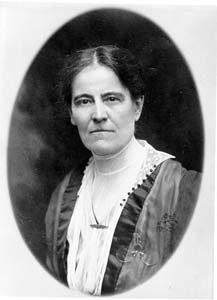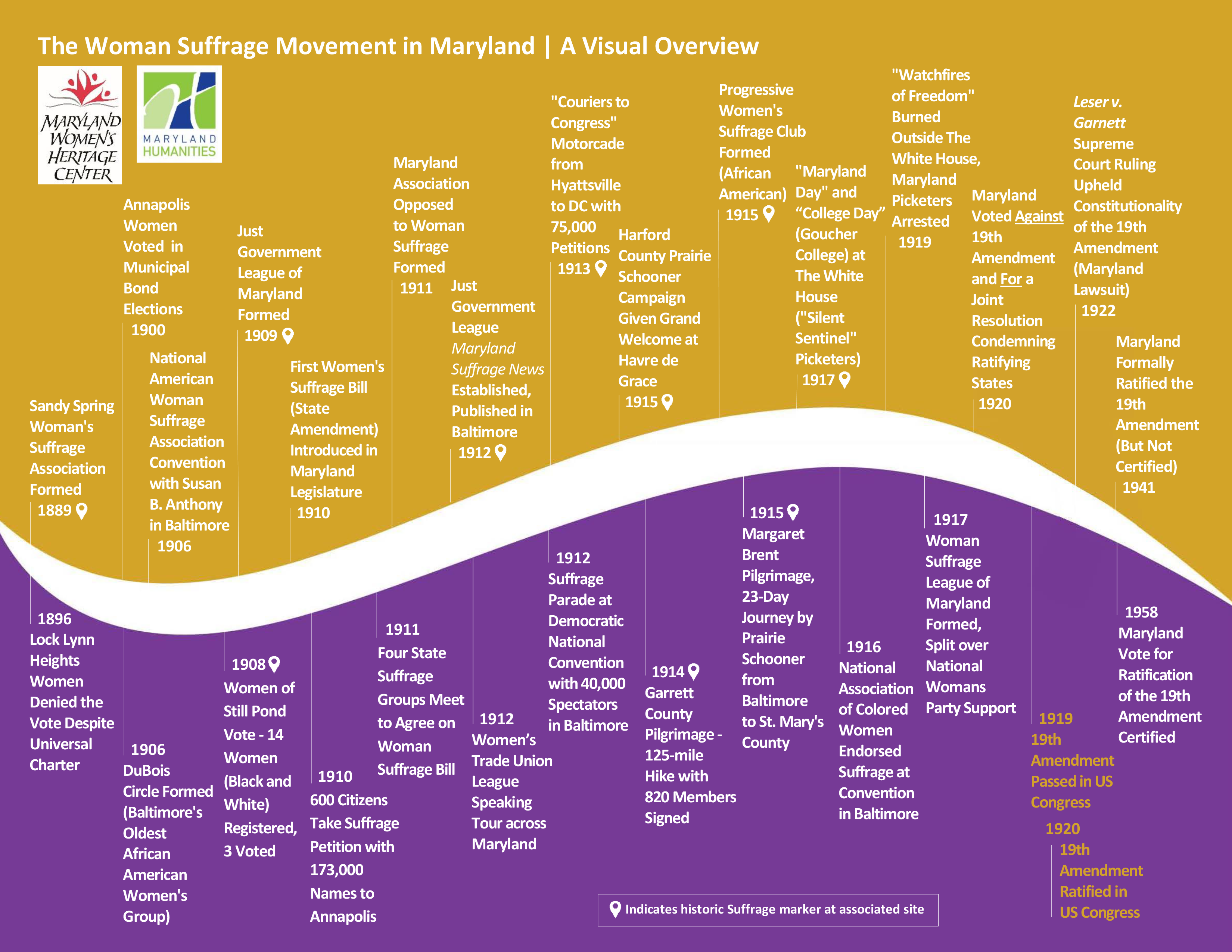By Jean Baker, PhD
Faculty member at Women’s College of Baltimore (Goucher) joined students at 1913 D.C. suffrage march
Born March 6, 1858 in Columbia, Pennsylvania, Lilian Welsh earned a medical degree at the Women’s Medical College of Pennsylvania in 1889 and then traveled to Switzerland to continue her medical training. In 1894, Dr. Welsh was recruited to join the faculty of the Woman’s College of Baltimore (Goucher College). For many years the only female full professor at the college, she unified physical education, physiology, anatomy, and hygiene into a department whose courses were required of all students. Her students recalled that “in the days of the struggle for women’s suffrage, all subjects in her course in hygiene led inevitably to the discussion of votes for women.”
In the Baltimore community, Dr. Welsh was a leader in the public health movement and an active member of civic, social, and suffrage clubs. At the base of the suffrage argument was the usefulness of women’s votes. Writing a few years after the suffrage movement, in her book, Reminiscences, Dr. Welsh remarked: “My teaching of hygiene as a community problem led straight to the ballot…I saw the necessity of the ballot for women in obtaining the social legislation for which they were working…A request to legislators would have much greater force when we could say ‘Thousands of voters stand behind this,’ instead of ‘thousands of women desire such legislation.’”
Becoming Secretary of the Baltimore Association for the Promotion of the University Education of Women in 1897, she worked to persuade Johns Hopkins University to open its graduate school to women, a goal realized in 1908.
On March 3, 1913, Dr. Welsh joined 100 Goucher students and national suffrage advocates for the inaugural suffrage march in Washington, D.C. In 1916, Dr. Welsh became the faculty leader of Goucher College’s Equal Suffrage League chapter.
After Dr. Welsh’s retirement, Goucher President Guth wrote, “Much of the success of the graduate students whom Goucher College has stimulated is directly attributed to the concern and the sympathy which Dr. Welsh showed for graduate study.” He continued, “It is hardly necessary for me to say a word concerning Dr. Welsh’s interest in and influence upon the movement for the political emancipation of women, to give them an equality of opportunity in all phases of educational, business and professional affairs. Dr. Welsh with her immediate associates…stood in the forefront of the movements…for the furthering of women’s rights. Her counsel was eagerly sought, her judgment was respected, and her word frequently became law—not in the sense of compulsion but of inevitableness.”
Dr. Lilian Welsh died in 1938, and she was inducted into the Maryland Women’s Hall of Fame in 2017.
Research Citations:
Welsh, Lilian. Reminiscences of Thirty Years in Baltimore; Baltimore: The Norman Remington Company, 1925
Goucher College, “Goucher Faculty Known to be Involved in Suffrage and Women’s Movements Suffrage Project” Biographical Data
Weaver, Diane E. “Maryland Women and the Transformation of Politics, 1890s-1930.” Unpublished Dissertation, University of Maryland, 1992
Excerpts, Maryland Women’s Hall of Fame Biography, 2017. Copyright, Maryland State Archives, 2017


